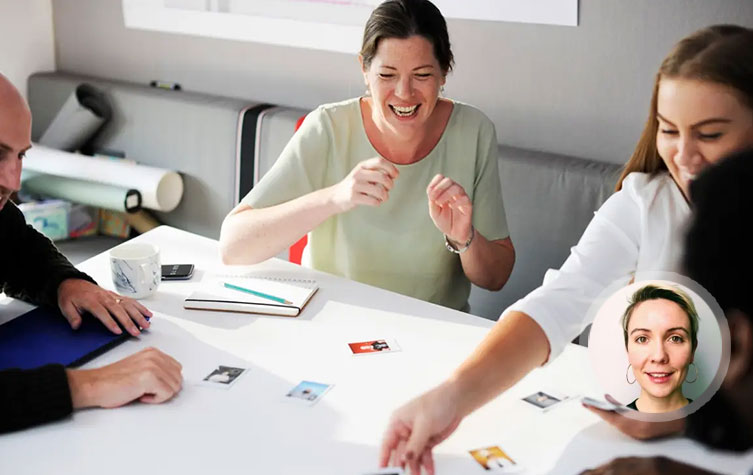When it comes to being wrong about something you are passionate about, there is an undeniable pleasure in finding your worldview challenged (which is uncomfortable at first) and arriving at a new, better, understanding in the process.
This is how I felt after the recent engagement I had with a prominent UK banking customer as part of our Fujitsu Responsible Business framework.
Engaging the network
This bank has a large and thriving Gender Network of more than 10,000 members. Their focus – from board all the way to entry level – is on helping all employees bring the best of themselves to work.
As a beneficiary of the battles for equality won by feminists before me, and as a passionate advocate for dismantling the barriers faced predominantly by women, you can imagine my excitement when I got the opportunity to support the Bank and its thriving Gender Network in delivering on its key aims.
Then the network shared the big problem they needed Fujitsu’s help in solving – how to get more men engaged…
Cue my sinking hear.
I had been eagerly awaiting this meeting, even researching the big challenges we could help the bank and its network solve. Now, our first opportunity to provide support was going to be all about men! My feminism centres women, thank-you-very-much. How can we address systemic issues disproportionately impacting women if we shift focus away from them?
The bank was clear about its challenge, however. They explained they already had a strong focus on DEI (diversity equity and inclusion) , a diverse board, ambitious targets and major programmes driving gender balance and equity. Yet, there was still an underwhelming rate of engagement among male colleagues, which was dampening efforts to hit goals.
So, it was incumbent on me as a partner to understand, empathise and support my customer. At the time, however, I couldn’t shake the feeling that we were missing an opportunity to work together on something more substantive and vital.
I was wrong about that.
Workshop sessions
Fujitsu’s Human Centric Experience Design (HXD) is about connecting people with diverse perspectives and creating an atmosphere which encourages experimentation.
Under this approach, novel concepts begin to emerge, along with a joint commitment across stakeholders to work on solving the problem together.
For our male allyship session members of the bank, Fujitsu subject matter experts and academics all came together to think about gender equity from the male perspective. We used personas of male employees ranging from engaged on the subject and wanting to be a strong ally, to disengaged and even defensive on the subject of gender equality.
Learnings
The workshop process was revelatory and led me to realise we can’t ignore a sizable chunk of the workforce and expect change to happen.In her book, Bias Interrupted: Creating Inclusion for Real and for Good, Professor Joan C. Williams emphasises the importance of using the appropriate tools to take on DEI in the workplace:
“If a company had a problem with sales, you wouldn’t hold a deep, sincere conversation about how much everybody values sales, dedicate a ‘National Celebrate Sales Month,’ and expect anything to change.”
Joan argues that organisations need to use basic business tools to solve this problem —evidence, metrics, and persistence in achieving measurable, concrete goals.
But taking this incremental, metric-based approach to workplace equity requires everyone, including men, to drive change and to be invested in the outcomes.
Understanding how men feel about their place as agents of change is important here. Discussing the ways bias impacts men at work was fruitful. A number of topics came up in the workshop, from paternity benefits and family concerns, to age and class bias, as well as the pressure men feel to default to a stereotypical version of the ‘professional man’.
Final thoughts
It is worth acknowledging that outside the relatively enlightened atmosphere of large progressive companies, it is vital to prioritise and promote the unique needs of women in the fight for liberation under patriarchy.
Within the corporate world, however, it is incumbent upon companies who are serious about DEI to tackle the subtler but stubbornly persistent problem of bias, unconscious or otherwise.
It is true to say that we cannot fully solve the problem of bias from the gender perspective while large chunks of the workforce are disengaged with, confused about or not fully bought into DEI.
To continue to drive progressive companies’ agendas forward, we need to take a business-like approach to interrupting assumptions and biases which all of us carry.
It is also vitally important to create space for a diversity of views and to be front-footed in highlighting the benefits of diversity and balance in work.
My own bias was challenged when I was asked to consider what male allyship means and, dare I say it, what’s in it for men? Pleasingly, the answer is lots if they come on the journey alongside us.

Written by
Ellen Logue
Strategic Client Executive at Fujitsu UK

